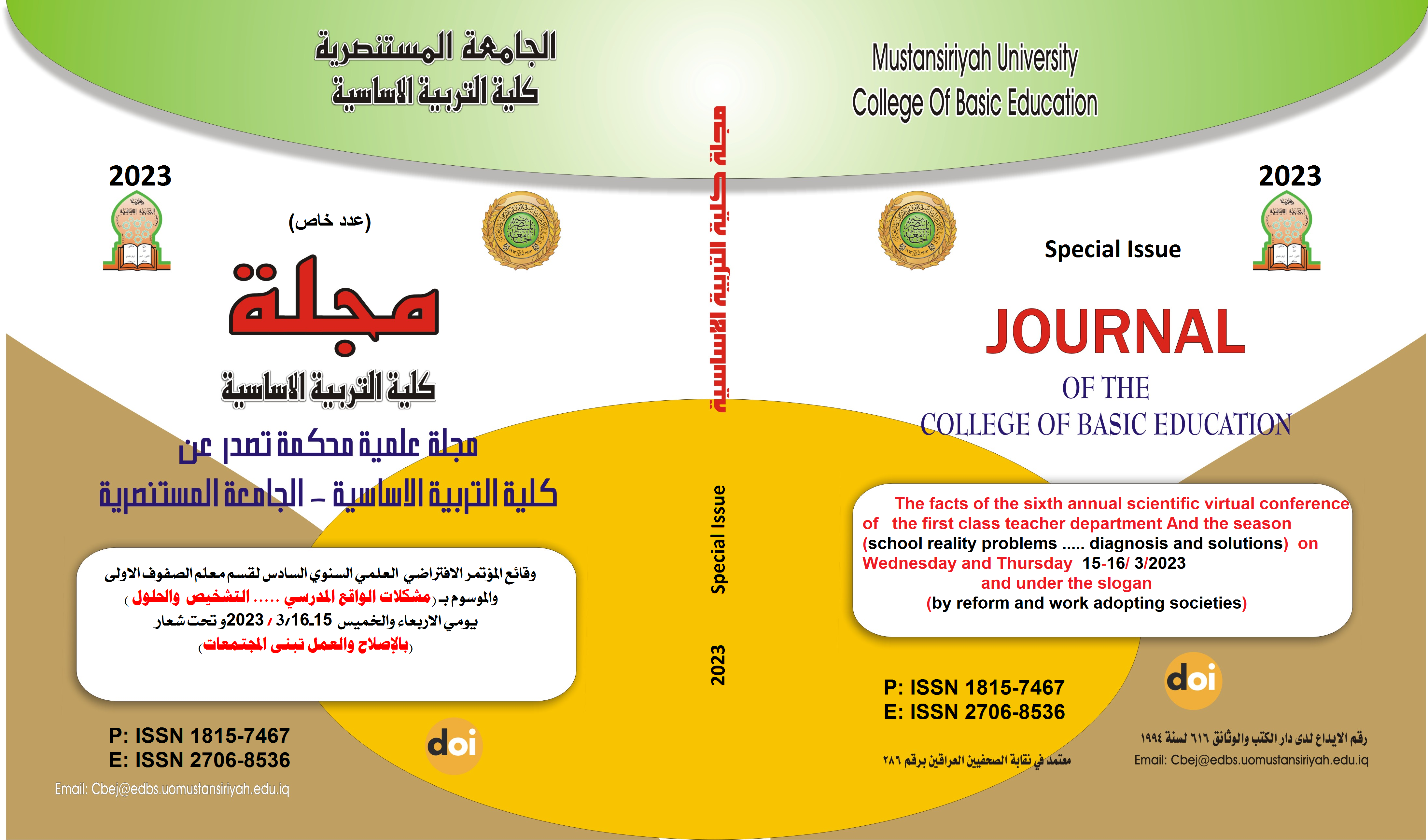اثر خرائط المفاهيم في التحصيل والتفكير الرياضي
Main Article Content
Abstract
The aim of the current research is to identify the impact of concept maps on achievement and mathematical thinking, and a partial design with two groups (experimental and control) was chosen, where the composition of the research sample (60) students from the first stage of the College of Basic Education and to ensure the equality of the students of the two groups in the variables (chronological age _ achievement Previous _ intelligence), where the researchers prepared two tests, one for achievement and the other for mathematical thinking for its six fields (induction - conclusion - expression by symbols - rational thinking and organized thinking - problem solving) The achievement test consisted of (30) items of the multiple test type and made sure of apparent honesty and content validity Then, the difficulty coefficient for each paragraph was calculated, as it ranged (0.46 - 0.68) and the discrimination coefficients ranged (0.24 - 0.52). The reliability coefficient was calculated using the KR-20 equation, so the reliability coefficient was (0.84). The mathematical thinking test consisted of (30) items of the multiple test type. Its apparent sincerity was confirmed, and the difficulty coefficient was calculated, and it was found to range (0.20-0.80). Hopefully, the stability coefficient was calculated using the KR-20 equation, and it was (0.85), and the results showed that there was a significant difference. statistically at the level (0.05) among the mean scores of the experimental group that studied statistics using concept maps and the second group that studied according to the (usual method) in the achievement test and the mathematical thinking test in favor of the experimental group
Article Details

This work is licensed under a Creative Commons Attribution-ShareAlike 4.0 International License.
